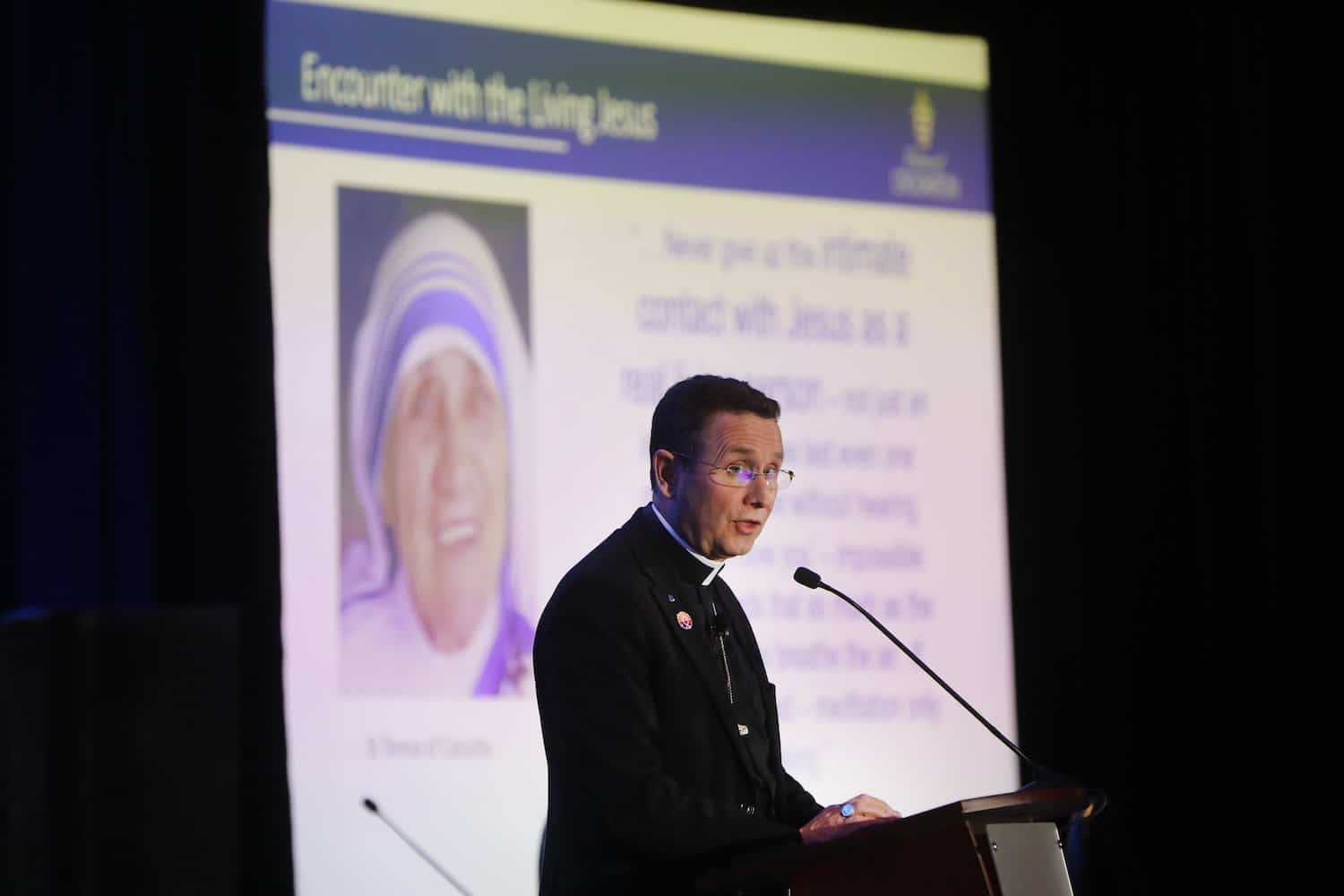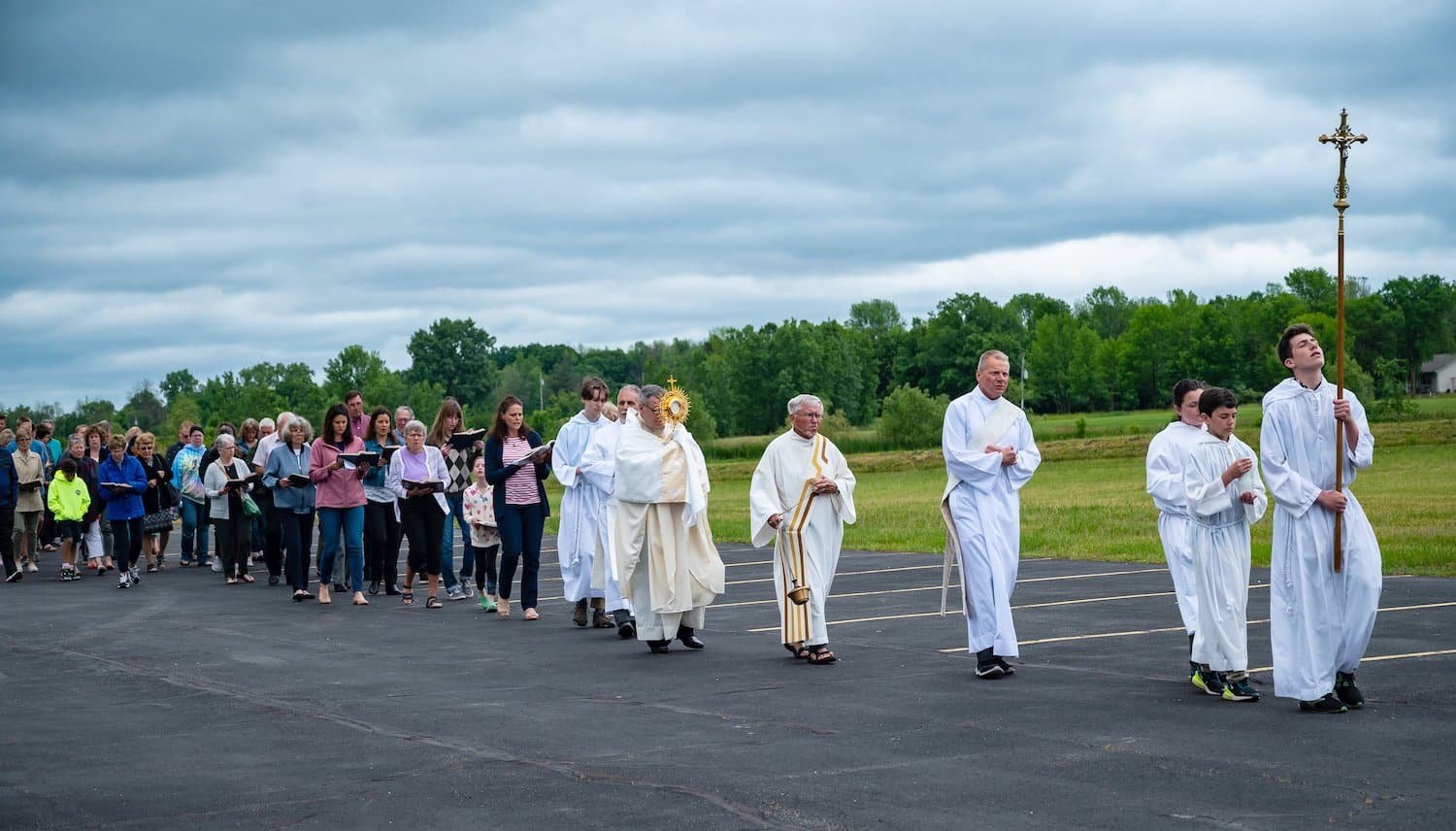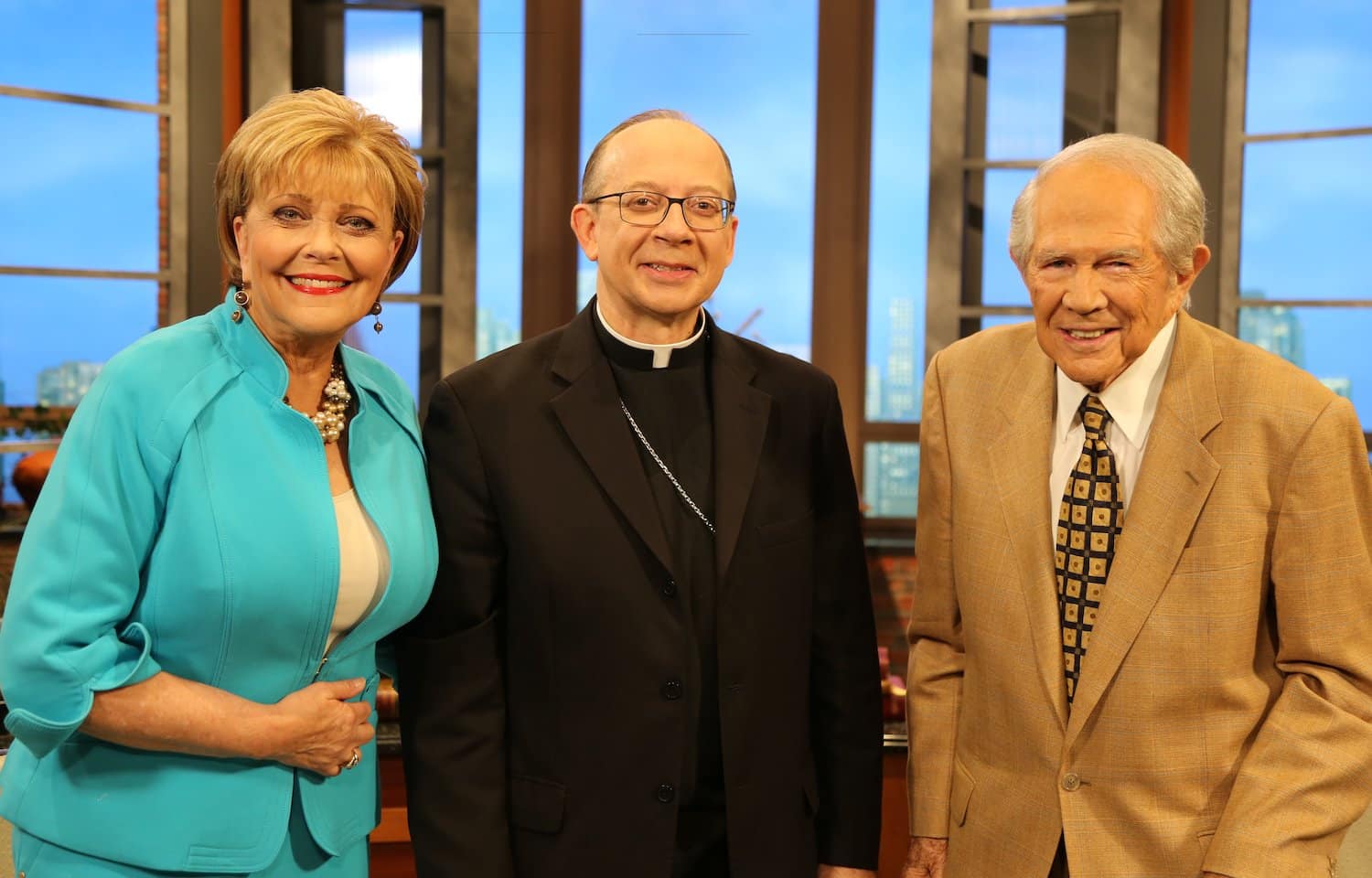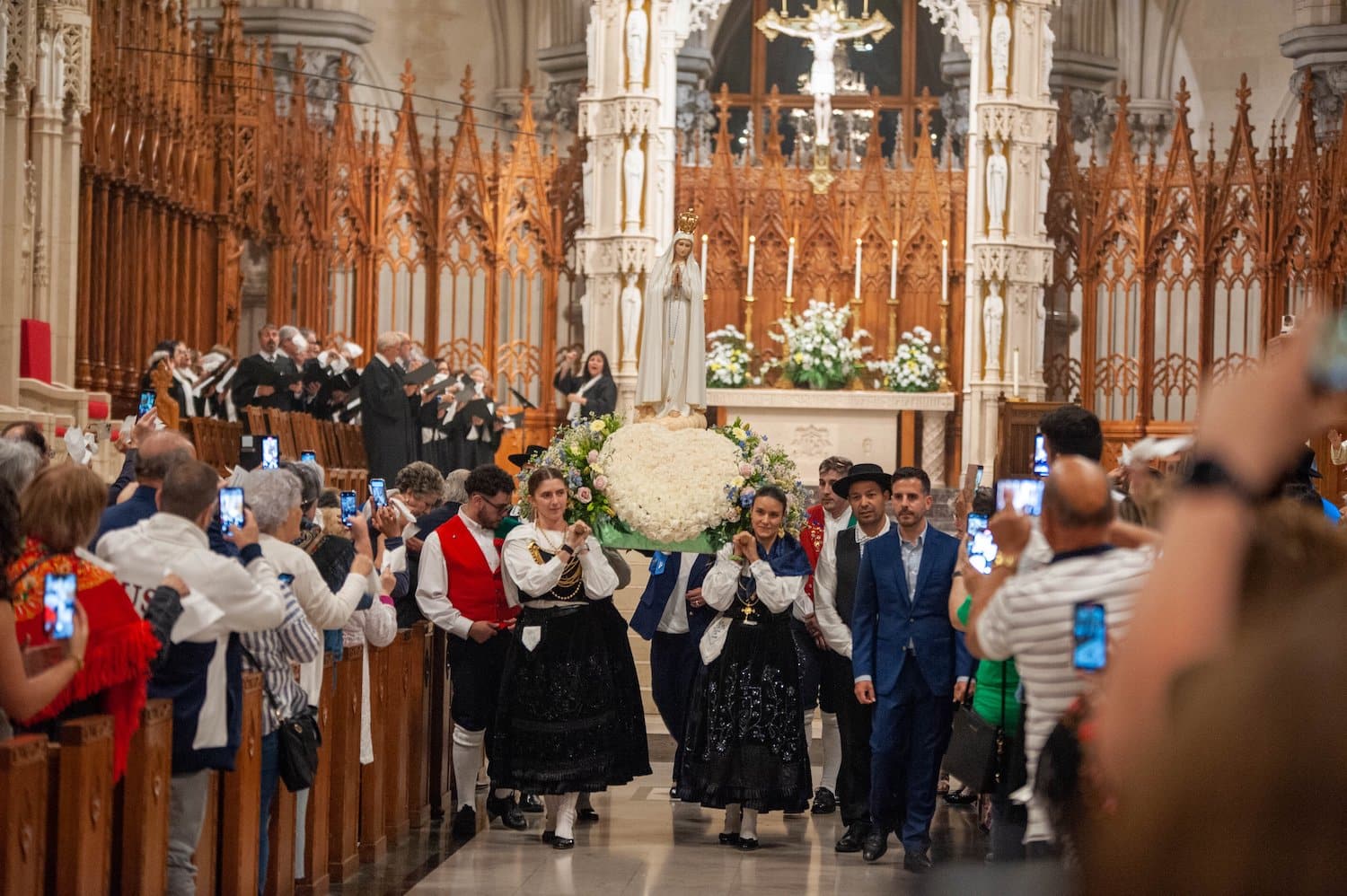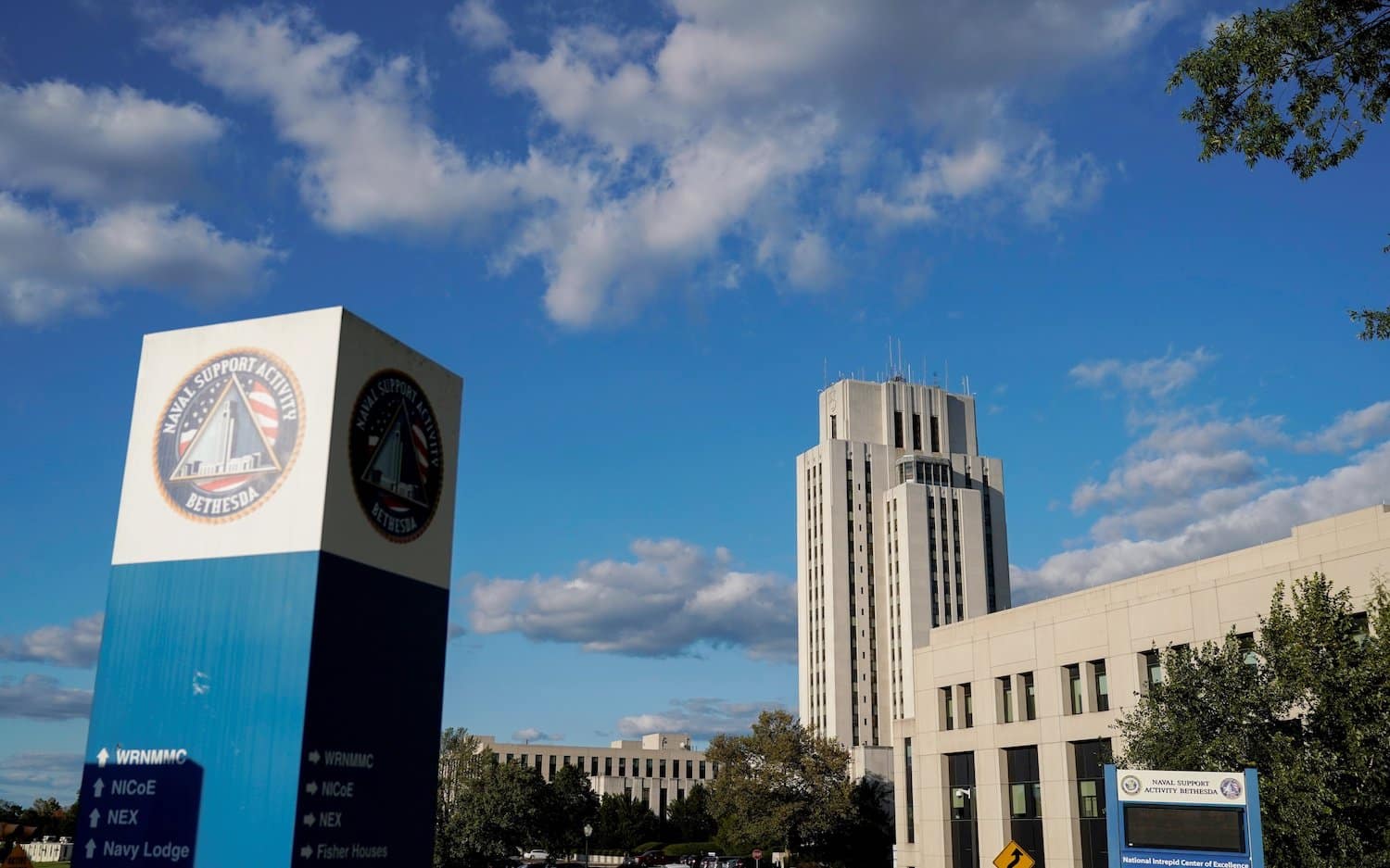(OSV News) — When Bishop Andrew H. Cozzens was a young priest studying in Rome, the Missionaries of Charity introduced him to a paraplegic man living in Ghent, Belgium. The man, Fernand, had hoped to become a priest, but a month before he planned to enter seminary, he contracted a disease that paralyzed him, allowing him only to move his head and squeeze his right hand. When Bishop Cozzens met him, he had been bedridden for 50 years.
“And yet, he was the most joyful man I’ve ever met,” said Bishop Cozzens, who leads the Diocese of Crookston, Minnesota. “This man loved the Mass and lived the Mass.”
Fernand has since died, Bishop Cozzens said, but he cherishes a memory from his last visit: “I’d just given him holy Communion. We were just paused in those minutes right after Mass, and then he opened his eyes and he said to me, ‘You know, Father Andrew, I’m just a man with all my weaknesses, but I’m burning with love.'”
“Brothers and sisters, this is what we’re trying to do with a Eucharistic Revival,” Bishop Cozzens said in a June 9 presentation at the Catholic Media Conference in Baltimore. “All of us, just to say this: I’m just a man, I’m just a woman with all my weakness, but I’m burning with love. And if the Church catches that fire, the world will be affected.”
Speaking at the Catholic Media Association’s June 6-9 annual gathering, Bishop Cozzens asked Catholic communications professionals to support the National Eucharistic Revival underway through their own witness, and by magnifying “stories of encounter.”
“I’ve said it many times and I’ll continue to say it because it’s true and I believe it: The Eucharistic Revival is about starting a fire and not a program,” he said. “We want to enkindle the love of the fire of Jesus’ heart in people — that love, which burns in Eucharist, that love which, when we really encounter it, transforms us and actually changes us into missionaries. This is the goal of the Eucharistic Revival.”
Encounter, he said, has four elements: “‘Who is Jesus?’ He’s God. ‘What am I called to?’ Conversion. I’m infinitely loved, and I’m called to be a disciple,” he said. “We need you to know those four elements and to highlight them, so that people can come to the fullness of encounter.”
Bishop Cozzens chairs the U.S. Conference of Catholic Bishops’ Committee on Evangelization and Catechesis, and is leading the National Eucharistic Revival, a three-year initiative that launched in June 2022.
The revival is about encounter and mission, he said, which flow from Pope Francis’ 2013 apostolic exhortation Evangelii Gaudium (“The Joy of the Gospel”) where the pope invited all Christians “to a renewed personal relationship with Jesus.”
“Encounter is the heart of discipleship. Without this encounter, if we don’t come to meet the living person of Jesus as a real, living person, then we will not be able to be true disciples,” Bishop Cozzens said.
He said Catholics go to their parishes for various reasons, and many in the pews have not had a true encounter with Christ. He noted the 2019 Pew Research Center study that seemed to find 70% of Catholics don’t believe in Jesus’ real presence in the Eucharist, prompted in part the National Eucharistic Revival. The bishops commissioned a follow-up study through Georgetown University’s Center for Applied Research in the Apostolate, which showed the number was closer to 60%.
The CARA survey also showed that among the 40% who profess belief in the Real Presence, only 15% go to Mass every Sunday, Bishop Cozzens said.
“What’s the gap there, that 35%?” he asked. “Obviously, they haven’t fully encountered Jesus in the Eucharist, right?”
The National Eucharistic Revival also is about mission, Bishop Cozzens said, because “mission is our greatest need right now.”
“This isn’t just Pope Francis — this is Pope Paul VI, John Paul II, Pope Benedict (XVI), Pope Francis — all saying the great need of our times is for the Church to make the missionary conversion,” he said.
He quoted from Pope Francis’ 2022 apostolic letter on liturgy “Desiderio Desideravi,” which states, “The world still does not know it, but everyone is invited to the Supper of the wedding of the Lamb. … We must not allow ourselves even a moment of rest, knowing that still not everyone has received an invitation to this Supper or knowing that others have forgotten it, or have got lost along the way in the twists and turns of human living. This is what I spoke of when I said, ‘I dream of a “missionary option,” that is, a missionary impulse capable of transforming everything, so that the Church’s customs, ways of doing things, times and schedules, language and structures can be suitably channeled for the evangelization of today’s world rather than for her self-preservation.’ I want this so that all can be seated at the Supper of the sacrifice of the Lamb and live from him.”
Bishop Cozzens said Pope Francis was restating the Second Vatican Council’s teaching that the Eucharist is “the source and the summit of our life, and it’s the source and the summit of evangelization.”
“What’s the purpose of our evangelization? So that people will come to the Eucharist, because here’s the source of life,” Bishop Cozzens said, sharing examples from Scripture of Jesus drawing his disciples to him.
In his hourlong talk, Bishop Cozzens also thanked Catholic journalists for their faithful work.
“Catholic communicators tell the Church’s story, but the story is not always easy to tell. It’s now always good news, in the way the world would understand it. Sometimes you have to tell the hard truth. You have to tell the hierarchy the hard truth, right? Your fidelity in the midst of that to Christ and to his Church, in the midst of difficulties and sufferings, it’s a great inspiration to me,” he said. “Your way to love and serve the Church in this field is really serving an incredible need.”

